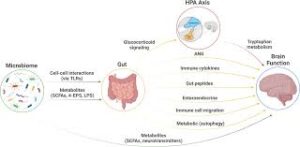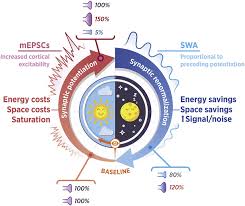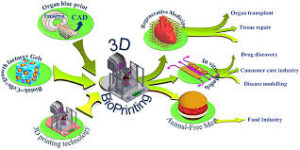The human body is a marvel of biological engineering, constantly evolving as scientific research delves deeper into its complexities. As we advance through 2024, new discoveries and technologies are revealing astonishing facts about how our bodies function. This article explores some of the most mind-blowing science facts about the human body that are shaping our understanding of health and physiology in the current year.
1. The Microbiome’s Influence on Mental Health

One of the most groundbreaking discoveries in recent years is the connection between the gut microbiome and mental health. Research has revealed that the diverse community of microorganisms residing in our intestines plays a significant role in regulating mood and cognitive function. The gut-brain axis, a bidirectional communication system between the gut and the brain, impacts everything from stress levels to mental illnesses like depression and anxiety. In 2024, scientists are increasingly exploring how probiotics and dietary changes can modulate the microbiome to enhance mental well-being.
2. The Immune System’s Memory and Adaptability
The immune system’s ability to remember and adapt is more sophisticated than previously understood. Recent studies show that immune cells have an advanced form of memory that allows them to recognize and respond to previously encountered pathogens with greater efficiency. This adaptive immunity not only helps in defending against infections but also influences how vaccines are developed and how the body responds to them. This research is paving the way for more effective vaccines and personalized immunotherapies.
3. Epigenetics and Gene Expression
Epigenetics, the study of changes in gene expression without altering the DNA sequence, is transforming our understanding of genetics. Scientists have discovered that environmental factors, lifestyle choices, and even stress can lead to epigenetic modifications that affect gene activity. These changes can be passed down through generations, influencing disease susceptibility and overall health. In 2024, epigenetic research is focusing on how these modifications can be harnessed for preventive health measures and personalized treatments.
4. The Complexity of the Human Connectome
The human brain’s connectome, the complex network of neural connections, is being mapped with unprecedented precision. Advances in neuroimaging and computational techniques have allowed researchers to explore the intricate wiring of the brain, uncovering how different regions communicate and collaborate. This detailed mapping is providing insights into cognitive functions, neurological disorders, and potential new treatments for conditions like Alzheimer’s disease and traumatic brain injury.
5. Regenerative Medicine and Stem Cell Therapy
Regenerative medicine, powered by stem cell research, is making significant strides in 2024. Scientists are exploring how stem cells can repair or replace damaged tissues and organs, offering hope for conditions that currently have limited treatment options. Recent breakthroughs include the development of lab-grown organs, advanced tissue engineering, and novel stem cell therapies that could revolutionize the treatment of diseases such as heart failure, spinal cord injuries, and degenerative disorders.
6. The Role of Circadian Rhythms in Health
Circadian rhythms, the internal biological clock that regulates sleep-wake cycles, are found to influence more than just our sleep patterns. Research has shown that these rhythms affect various physiological processes, including metabolism, hormone production, and immune function. Disruptions in circadian rhythms, such as those caused by shift work or irregular sleep patterns, are linked to a range of health issues, including obesity, diabetes, and cardiovascular diseases. In 2024, scientists are focusing on how optimizing circadian rhythms can improve overall health and well-being.
7. The Impact of Air Quality on Lung Health
Air quality has always been recognized as a factor in respiratory health, but recent studies are revealing even more about its impact on the human body. Fine particulate matter (PM2.5) and other pollutants can penetrate deep into the lungs and enter the bloodstream, leading to systemic inflammation and contributing to diseases such as asthma, chronic obstructive pulmonary disease (COPD), and cardiovascular conditions. Advances in air quality monitoring and research are helping to better understand these effects and develop strategies for mitigating the health risks associated with poor air quality.
8. Personalized Nutrition and Genetic Testing
The concept of personalized nutrition, tailored to an individual’s genetic profile, is gaining traction in 2024. Genetic testing can reveal how your body responds to different nutrients, foods, and diets. By understanding your unique genetic makeup, you can optimize your nutrition for better health outcomes. This approach is revolutionizing diet plans and offering more targeted recommendations for managing weight, preventing chronic diseases, and enhancing overall wellness.
9. The Power of Sleep in Cellular Repair

Sleep is crucial for cellular repair and overall health, a fact that is being further elucidated by recent research. During deep sleep, the body undergoes essential repair processes, including tissue regeneration and the removal of waste products from the brain. Poor sleep or sleep disorders can impair these processes, leading to a higher risk of chronic conditions such as heart disease, diabetes, and cognitive decline. In 2024, the focus is on improving sleep quality and understanding how it affects long-term health.
10. The Evolution of Personalized Medicine
Personalized medicine, which tailors medical treatment to the individual characteristics of each patient, is becoming increasingly sophisticated. Advances in genomics, bioinformatics, and data analytics are enabling more precise and effective treatments. By integrating genetic, environmental, and lifestyle data, healthcare providers can develop personalized treatment plans that are more effective and have fewer side effects. This approach is transforming the landscape of medicine, offering more targeted therapies for a wide range of conditions.
11. The Significance of the Endocannabinoid System
The endocannabinoid system (ECS) plays a crucial role in regulating various physiological processes, including mood, pain perception, and appetite. Research in 2024 is uncovering how the ECS interacts with cannabinoids from both internal sources (endocannabinoids) and external sources (phytocannabinoids, such as those found in cannabis). Understanding the ECS is leading to new insights into pain management, mental health treatments, and the therapeutic potential of cannabinoids.
12. The Influence of Gut-Brain Communication on Physical Health
The connection between the gut and the brain extends beyond mental health. Recent studies have shown that gut-brain communication can influence physical health conditions such as obesity, diabetes, and autoimmune diseases. The gut microbiota can impact systemic inflammation and metabolic processes, highlighting the importance of maintaining a healthy gut for overall physical health. In 2024, research is exploring how dietary interventions and probiotics can improve gut-brain communication and, consequently, physical health.
13. The Impact of Digital Devices on Brain Function
The proliferation of digital devices has led to concerns about their impact on brain function. Studies are investigating how prolonged use of smartphones, computers, and other digital technologies affects cognitive processes such as attention, memory, and problem-solving. While digital devices offer many benefits, understanding their potential effects on brain health is crucial for developing strategies to mitigate negative impacts and optimize cognitive performance.
14. The Role of Telomeres in Aging
Telomeres, the protective caps at the ends of chromosomes, play a significant role in cellular aging and longevity. Research in 2024 is exploring how telomere length and integrity affect the aging process and susceptibility to age-related diseases. Telomeres naturally shorten with age, but lifestyle factors such as diet, exercise, and stress management can influence their rate of deterioration. Advancements in telomere research are offering new insights into aging and potential interventions to promote healthy aging.
15. The Future of Bioprinting and Tissue Engineering

Bioprinting, a technology that uses 3D printing to create biological tissues, is revolutionizing the field of regenerative medicine. Recent advancements in bioprinting techniques are enabling the creation of complex tissue structures, such as skin, cartilage, and even organs. This technology has the potential to address the shortage of organ donors and improve the treatment of various medical conditions. In 2024, bioprinting is at the forefront of innovation, with promising applications in personalized medicine and tissue repair.
Conclusion
The human body is an intricate and dynamic system, and ongoing scientific research continues to uncover fascinating and surprising facts about its function. From the impact of the microbiome on mental health to the advancements in bioprinting and tissue engineering, the discoveries of 2024 are shaping our understanding of health and disease. Embracing these insights can lead to improved wellness, personalized treatments, and a deeper appreciation for the complexity of the human body. Stay informed and engaged with the latest scientific developments to make the most of these remarkable advancements in health and medicine.

